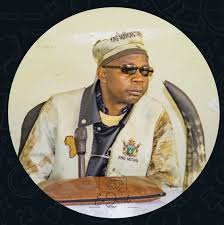POLITICAL analysts have described the appointment of the Zimbabwe Defence Forces Commander Philip Valerio Sibanda as an ex-officio Zanu PF politburo member as a coup-proofing mechanism by President Emmerson Mnangagwa who is consolidating his power.
Mnangagwa announced the post at the just-ended Zanu PF annual conference held in Gweru. The move has been widely criticised due to its disregard of the country’s Constitution which prohibits serving members of the security sector from involvement in partisan politics.
Sibanda has been serving as ZDF Commander since 2017.
In an interview with NewZimbabwe.com political analyst Eldred Masunugure said the formalisation of his membership in the ruling party politburo is problematic.
“This marks an inflection point in post-independence civil-military relations in making Commander of the Defence Forces (CDF) an unequivocally partisan head of the national defence forces.
“CDF will henceforth find himself in a very invidious position where on one hand he is in charge of national defence force but on the other is an active and overt member of a particular party.
“As many have observed, this is also possibly in flagrant violation of the national supreme law,” Masunungure said.
He added that the development was perfectly consistent with the Beijing model of civil-military relations where the military is an integral part of the party.
“It could be that the President sees this model as an effective coup-proofing mechanism that has worked well in China and is expected to work equally effectively in Zimbabwe.”
Masunungure further highlighted that the appointment could also highlight Mnangagwa’s keenness to resolve the succession issue that led to the 2017 “Operation Restore Legacy”.
“It can also be speculated that CDF PV Sibanda is being considered as an answer to the recurrent and unfinished succession question in the ruling party.
“He would, for instance, retire as CDF on reaching the ‘mandatory’ retirement age, then he is appointed a full Politburo member, then appointed as one of the VPs and ultimately is elevated to the apex of the party and government.
“Such speculation cannot be entirely jettisoned. Let us wait and see,” he added.
Academic Ibbo Mandaza simply “it is worrying that some people can just disregard the Constitution of the land like that.”
Innocent Kagodora said the nepotism in the appointments made so far after the August elections is a signal to the consolidation of power by the President as factionalism cannot be completely ruled out.
“The appointment leaves a lot to be desired and it seems to be paving the way for the CDF Chief to deputise VP Chiwenga in the event President Mnangagwa decides not to change the constitution to continue as the leader of the nation” Kagodora hinted.
The Zimbabwean Constitution currently allows for only two five-year terms.
He added, “It is complicated that an army general gets closer to a President. Even if the Army General is related to him, sometimes he might be bringing enemies closer to him.
“The move also depends on how loyal are the generals to him to serve in the interest of the appointing authority. Sibanda might be coming in to replace VP Kembo Mohadi who has not been well for some time now.”
The analyst went further: “Everything points to power consolidation. If everything goes the way he wants, by 2030, he will be there with the people he can trust.”
According to him, President Mnangagwa was yet to see if there were going to be challengers to the appointment of CDF Sibanda to a political party.
He warned: “We now have a full-blown dictatorship, militarised state and if we are not careful, a 2017 scenario might repeat.
“There are no boundaries anymore between the state, the military and Zanu PF. The sad part is that the country has a docile population and opposition parties. The situation is precarious. Zimbabwe is now a ‘defacto’ one-party State. This is shown by the iron rule being used by the government on its citizens.”
Source NewZimbabwe










